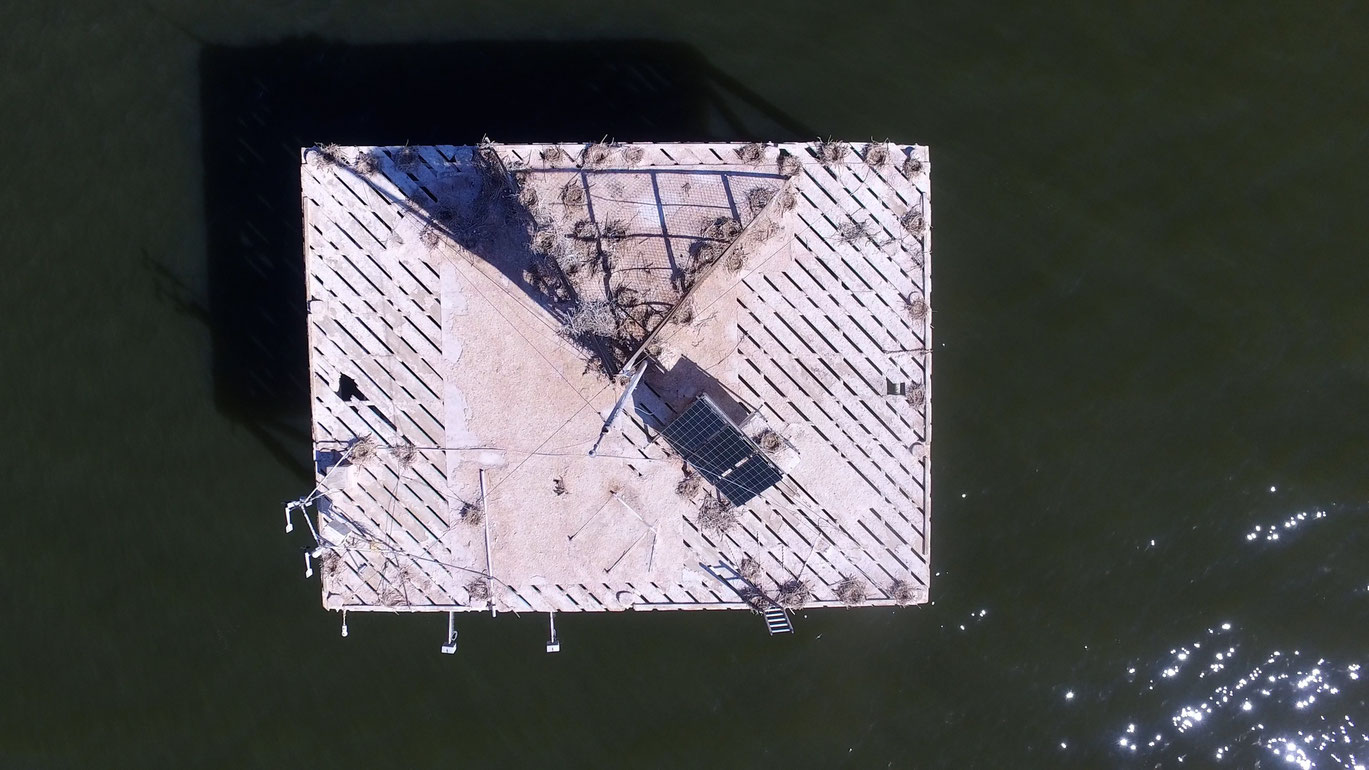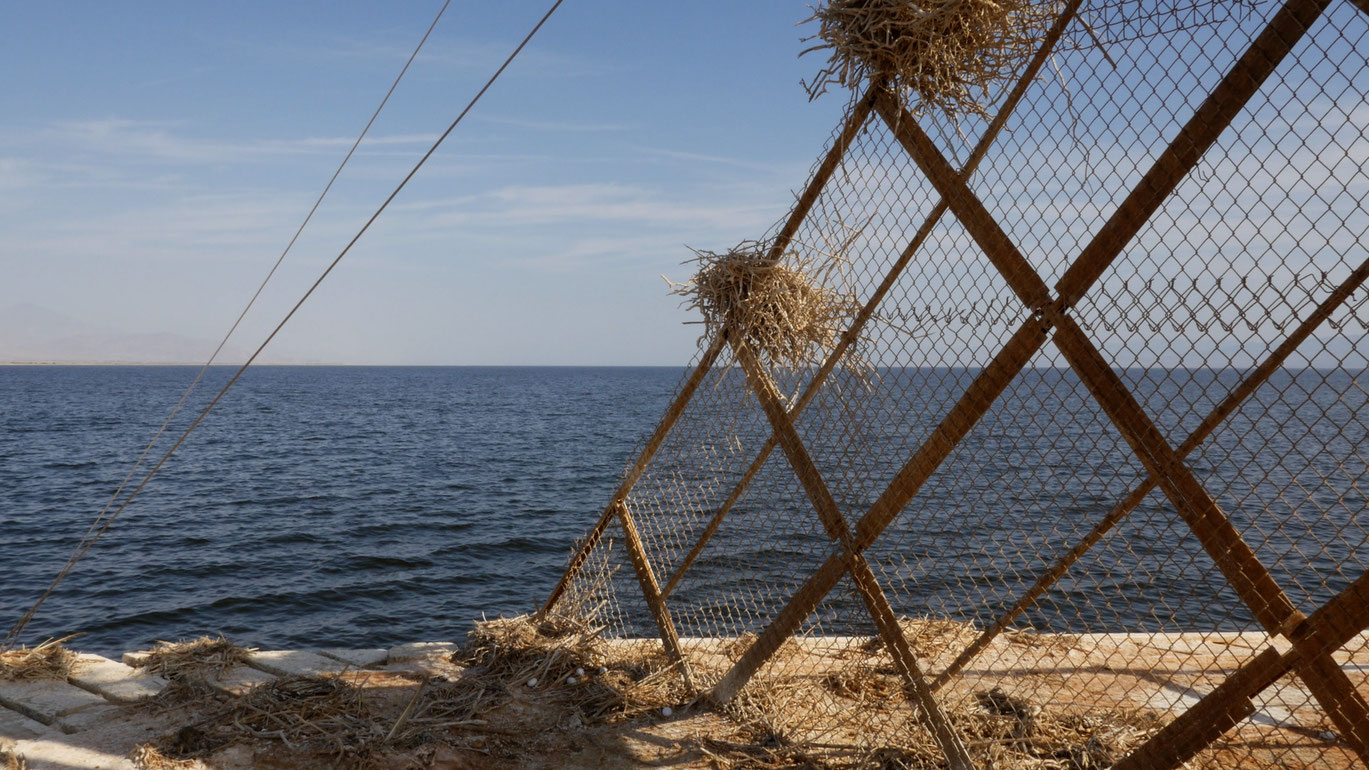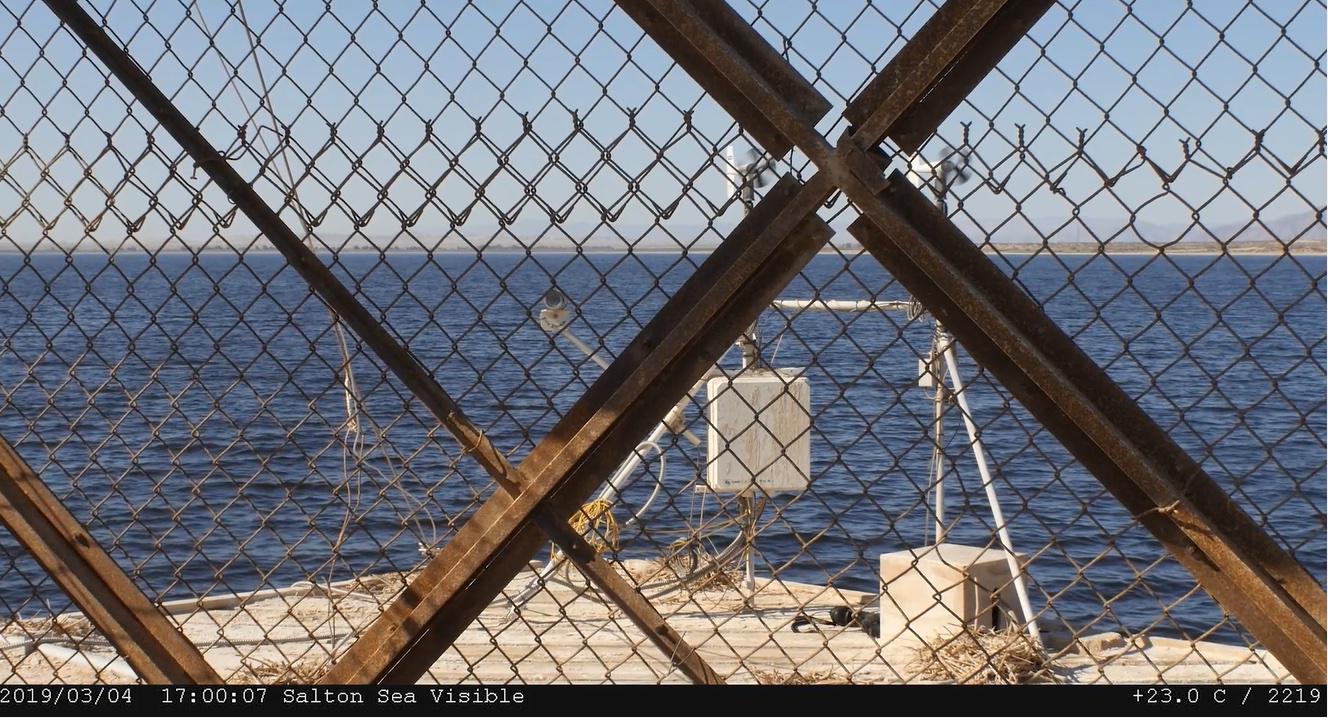Marine Target
The surface of the Salton Sea reflects the glistening sunlight. Sediment colors the water green at times, at the edge of the image, almost bluish. The camera that captures this gentle flickering and flowing, floats far above a white rectangle. It moves slowly toward this structure, in the midst of the body of water bordered only by the frame, before looking around at the small, weathered platform in gradually arranged shots.
Lukas Marxt’s films are interested in intrusions; in forms that are incorporated in an apparently natural environment. They are witnesses to an inscribing in nature: people endow order in them with the help of machines, exercise power. Their traces are accordingly rectilinear, oppose growth with the constructed, flowing with function. Marxt’s technically armed eye participates in this aesthetic of standardized intervention, subtly infiltrates it. In MARINE TARGET the sound supplements this suspended precision of Marxt’s images with psychedelic ornaments—and a pop culture tribute to the Californian desert.
The white rectangle on the lake houses measuring devices. In the midst of the inhospitable, things are documented. Instruments register the wind, make photos. The gazes are those of an apparatus. The off commentary spoken by Julia Scher knows: in 1944/45 the U.S. Navy examined the ideal height of an atomic bomb explosion, Project Y studied ballistic and aerodynamic behavior of various types of bombs with the help of test goals.
Marine Target 10MA still seems contaminated by its former purpose: birds fester, metal rusts on long dried mud. Between isosceles steel constructions, abandoned nests announce failed attempts to endow life here. MARINE TARGET registers all of this, layers the history of the site over its images before the film itself becomes the test objective. (Alexander Scholz)
Translation: Lisa Rosenblatt
Marine Target
2022
Germany, Austria
9 min 20 sec



